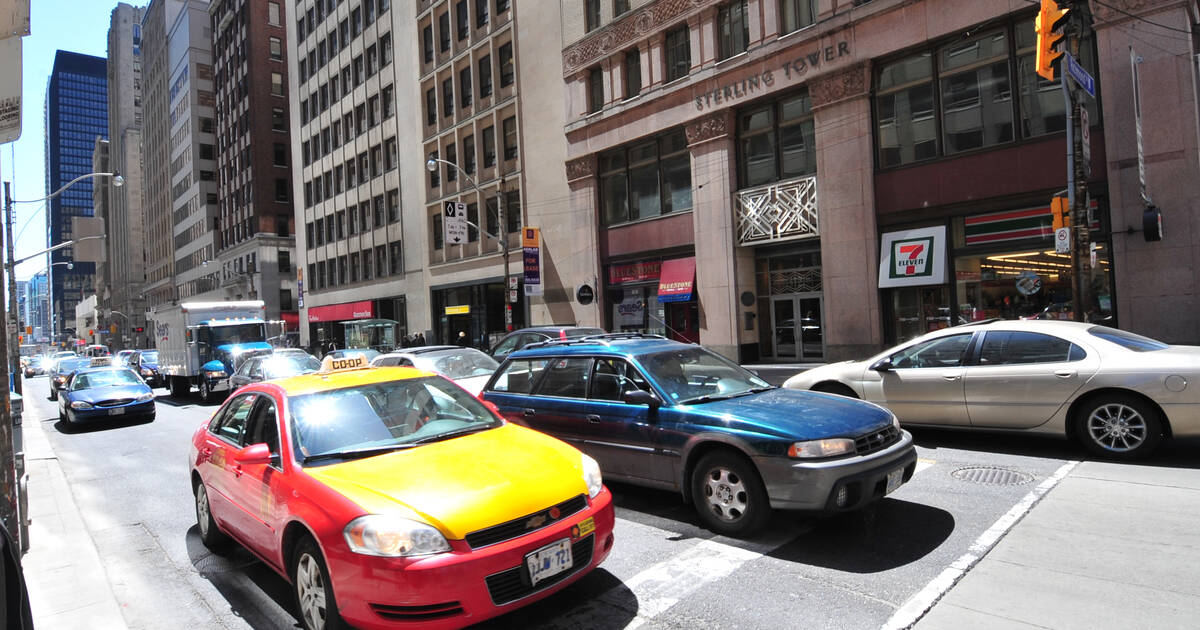
Rideshare companies like Uber and Lyft are under-regulated, compared to taxicabs in Toronto, which is further congesting the city, according to a new Ryerson University Urban Analytics Institute study.
The report found that the lack of regulations on Private Transportation Companies (PTCs) encourages more people to utilize Uber and Lyft, which is increasing greenhouse gas emissions and creating grounds for safety violations.
According to the study, PTCs make up about 176,000 trips a day in Toronto and are responsible for the significant rise of city traffic, adding millions of additional trips per year.
While Taxi companies are restricted to about 5,000 vehicles, there is no cap on PTC vehicles, which make up about 70,000 Toronto licenses.
New York has capped the number of licenses for Uber/Lyft after a study found they generate 30 per cent of Manhattan traffic. Will Toronto follow? https://t.co/8x6wBVJvkX
— Simona Chiose (@srchiose) June 24, 2019
“The City of Toronto should eliminate discrepancies in regulations that may adversely impact one set of operators while benefiting another,” the Ryerson report states.
The study voices concern that the regulation are not equal between taxicabs and companies like Uber and Lyft.
In November 2014, the City filed a court injunction against Uber stating that the company endangered public safety and did not adhere to taxi regulations.
In July 2015, the Ontario Superior Court dismissed the injunction. A year later, the Vehicle-for-Hire-by-law legalized Uber in Toronto.
In order to apply for a cab permit, the driver must have three years of experience. Only one year of driving experience is required for rideshare vehicles, which means the drivers can be as young as 18-years-old.
Taxi drivers are more likely to be 25 or older, since they are required to have commercial insurance.
The police must verify taxicab drivers’ criminal backgrounds, while third party private companies complete PTC drivers checks.
City council deleted emissions requirements for taxi and Uber/Lift. If we are serious about fighting climate change, this needs to be fixed. City committee debating this today.
— Mike Layton (@m_layton) June 24, 2019
It is mandatory that taxi drivers have cameras inside of their cars to regulate driver and passenger safety, which costs around $1,000. Many PTC drivers do have cameras, but it is not mandatory.
The City of Toronto found that 49 per cent of travellers would have taken public transit if they did not have access to Uber or Lyft. The Ryerson report estimates that the number of annual public transit trips would increase about 20 million a year if ridership did not favour PTC.
WATCH OUT TORONTO!! Uber’s lobbyists are all over the city hall to stop the passing of any rules and regulations👇Toronto’s unequal taxi and ride-share rules contributing to downtown congestion, worsening emissions, report says https://t.co/h7mCEGPQEk via @torontostar
— jafarmirsalari (@jafarmirsalari) June 24, 2019
The city’s licensing committee is scheduled to discuss this topic next Monday, which will be the first major meeting on the subject since Uber was legalized in Toronto in 2016.
by Hannah Alberga via blogTO

No comments:
Post a Comment